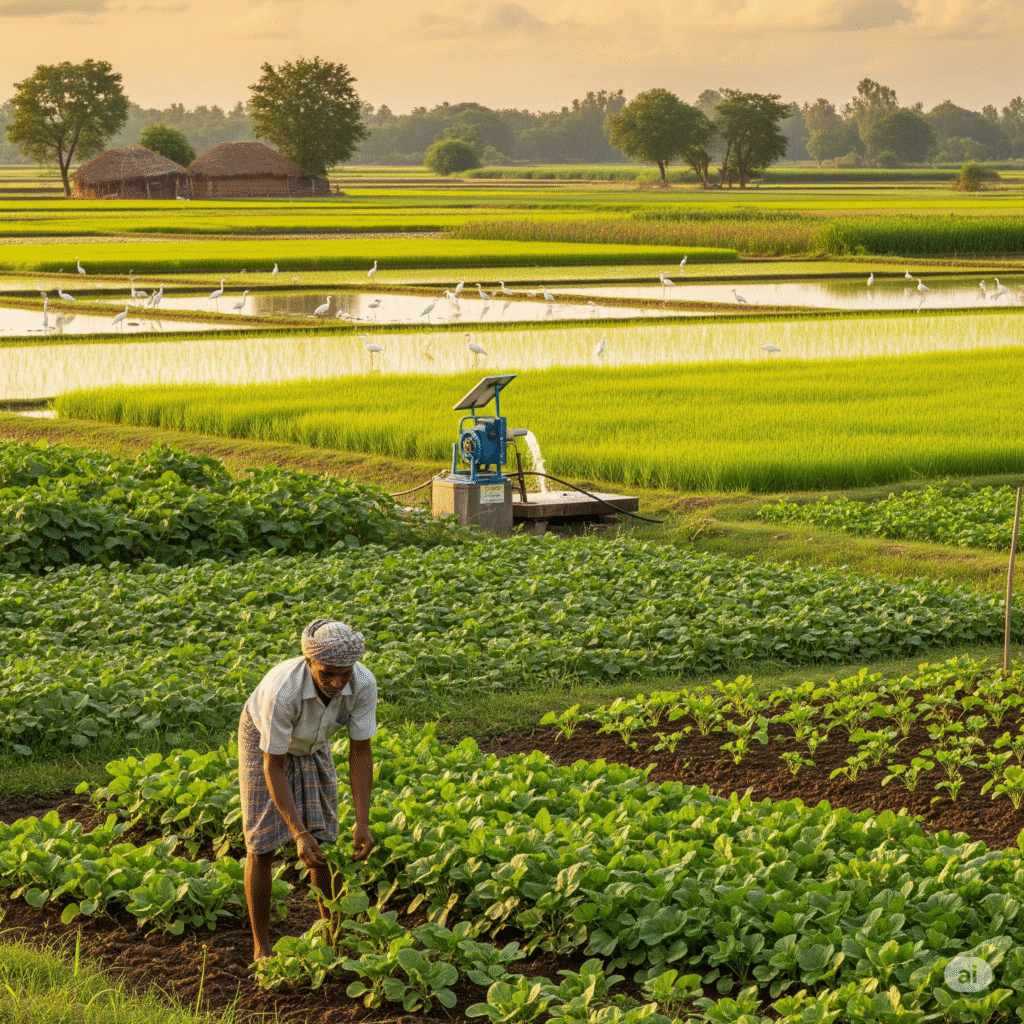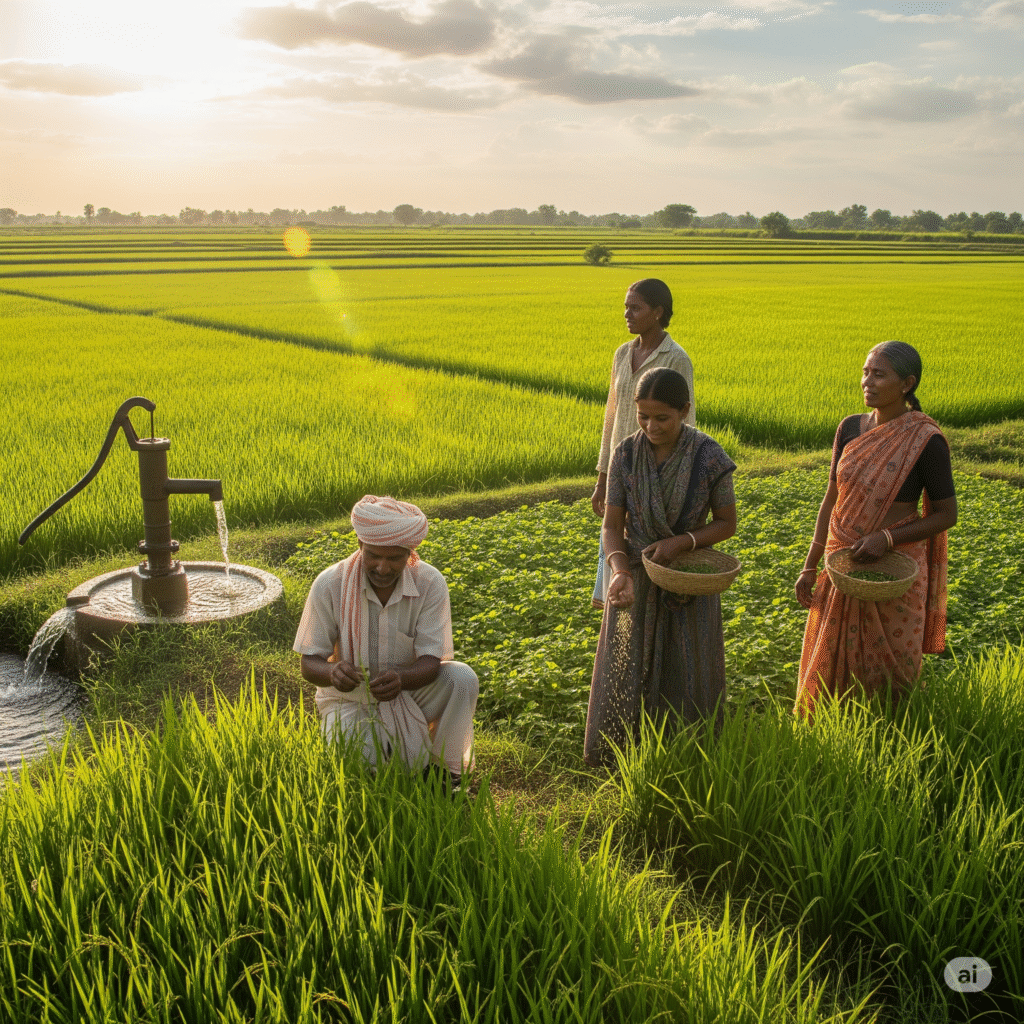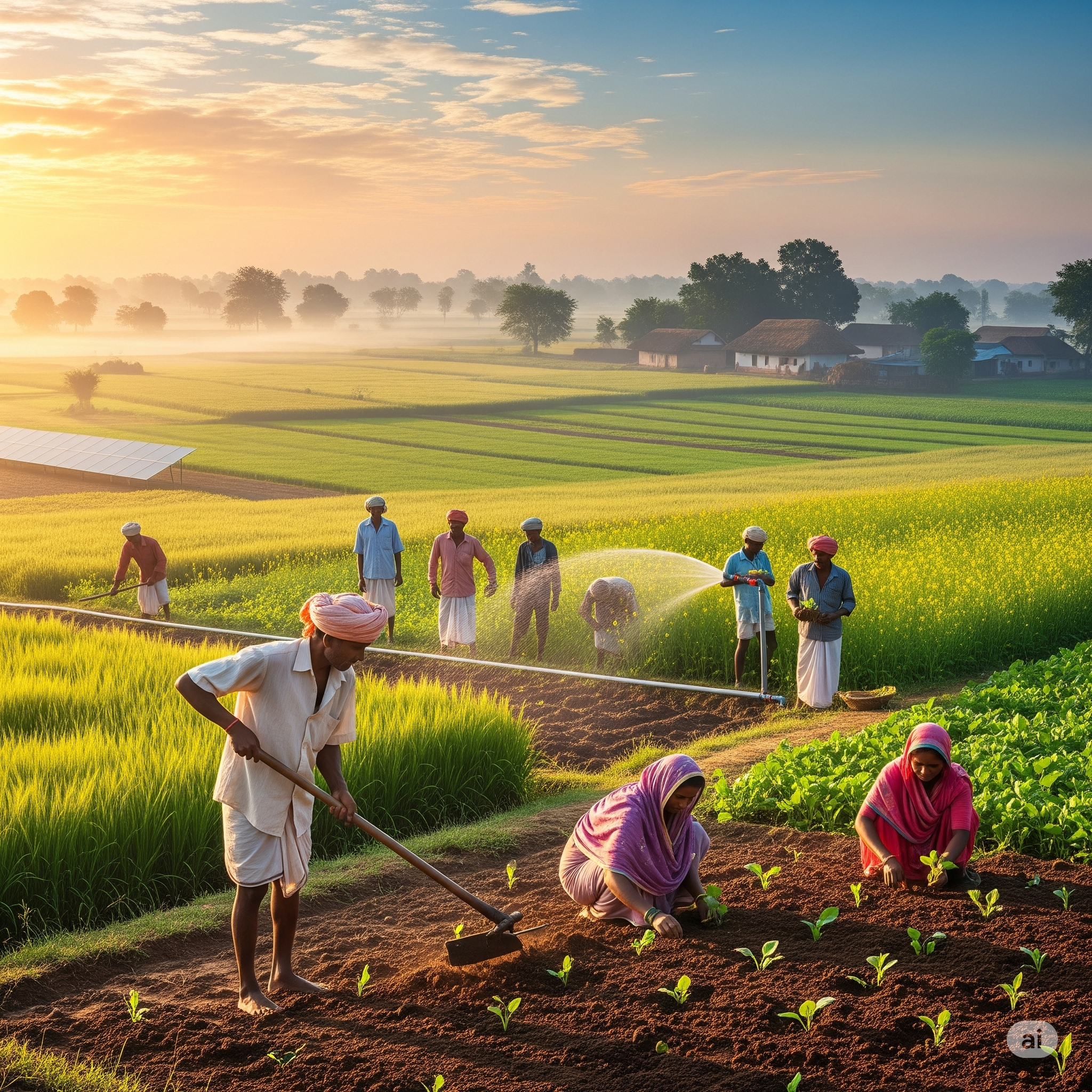Sustainable agriculture in India

In a nation where agriculture forms the backbone of the economy and sustains the livelihoods of millions, the shift towards sustainable practices is not just a choice—it’s a necessity. Traditional farming methods, heavily reliant on chemical inputs, have led to a host of Indian agriculture challenges, from soil degradation and water scarcity to a decline in biodiversity. This is where sustainable agriculture in India emerges as a powerful solution, offering a path to secure our food supply while protecting our natural resources for future generations.
The Core of Sustainable Farming in India
So, what does sustainable farming practices in India truly entail? At its heart, it’s a holistic approach that seeks to balance the needs of the farmer, the environment, and the consumer. It moves beyond the limitations of conventional methods to foster long-term resilience. This includes everything from crop rotation and intercropping to using natural pest control methods. The goal is to build a farming system that is both economically viable and ecologically sound.
One of the most prominent philosophies gaining traction is Zero Budget Natural Farming (ZBNF) India, a method championed by agricultural scientist Subhash Palekar. ZBNF emphasizes the use of on-farm inputs and eliminates the need for external fertilizers and pesticides, effectively cutting down a farmer’s cost of production to “zero.” This approach, combined with the principles of organic farming in India, focuses on improving soil health management India through the use of organic matter and natural microbes, leading to richer, more fertile soil.
Government and Grassroots: Catalyzing the Green Revolution
Recognizing the urgent need for change, the Indian government has launched several initiatives to promote sustainable practices. The Paramparagat Krishi Vikas Yojana (PKVY) is a flagship program that provides financial assistance and training to farmers to adopt organic farming. These government schemes for organic farming in India are crucial in helping small-scale farmers make the transition.
The benefits of regenerative agriculture in Indian context are particularly significant. By restoring degraded soil and enhancing biodiversity, regenerative practices can boost crop yields and make farms more resilient to the impacts of climate change. This is a critical factor, given the direct impact of climate change on Indian agriculture, which manifests as unpredictable weather patterns, droughts, and floods.
The Promise and the Path Ahead
The success of sustainable agriculture is not just a theory; it’s being proven on the ground. There are countless inspiring case studies of successful sustainable farms in India, from farmers in Sikkim who have completely transitioned to organic farming to communities in Andhra Pradesh that have embraced ZBNF with remarkable results. These examples show that it’s not only possible but also profitable.
For those looking to get involved, there are many avenues. Aspiring farmers can join organic farming training programs in India to learn the necessary skills. Consumers can support the movement by seeking out organic food brands India and making purchases from local, sustainable producers. For instance, you can buy organic vegetables online in Bangalore or other cities, directly supporting farmers who prioritize eco-friendly methods. The rise of Agri-tech startups India is also playing a key role, introducing innovations and tools that make sustainable farming more efficient and accessible.

However, the journey is not without its hurdles. One of the biggest challenges is the economic viability of new practices. The blog post will explore how to start sustainable farming in India for small farmers by highlighting government subsidies and training programs that can reduce initial costs and risks. The article will also cover topics like water conservation in Indian agriculture as an essential part of sustainable farming.
Ultimately, the future of Indian agricultural policy must be centered on sustainability and resilience. By promoting traditional wisdom alongside modern technology, we can ensure a future where our farms are not only productive but also thriving ecosystems.


